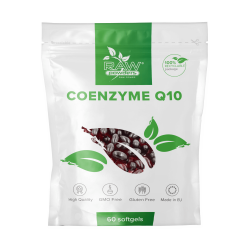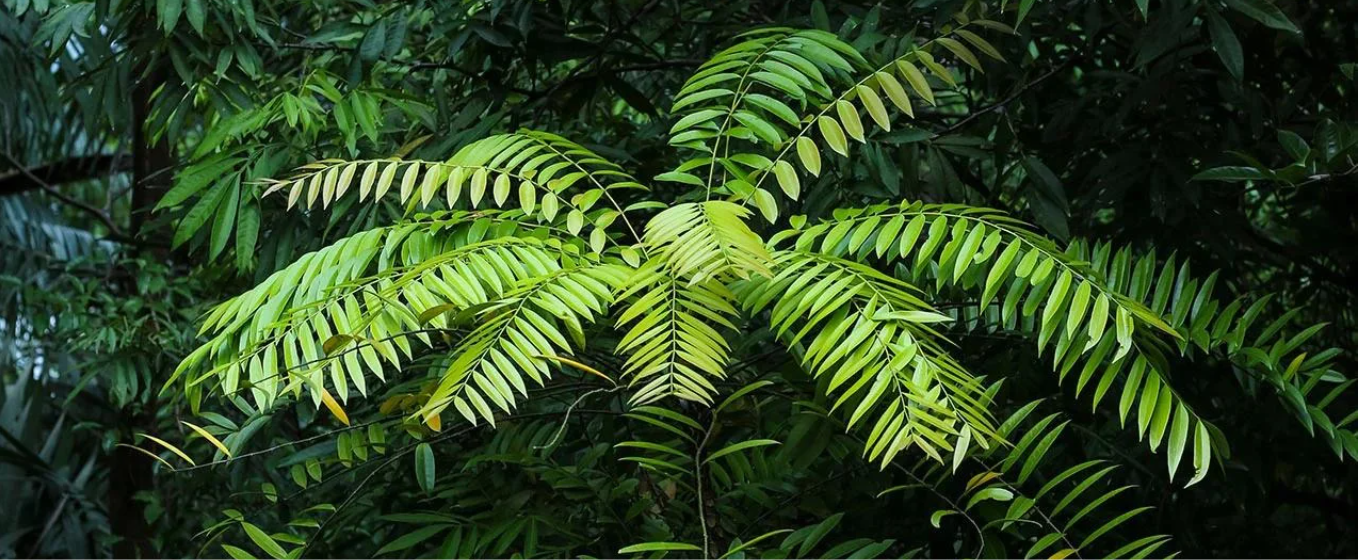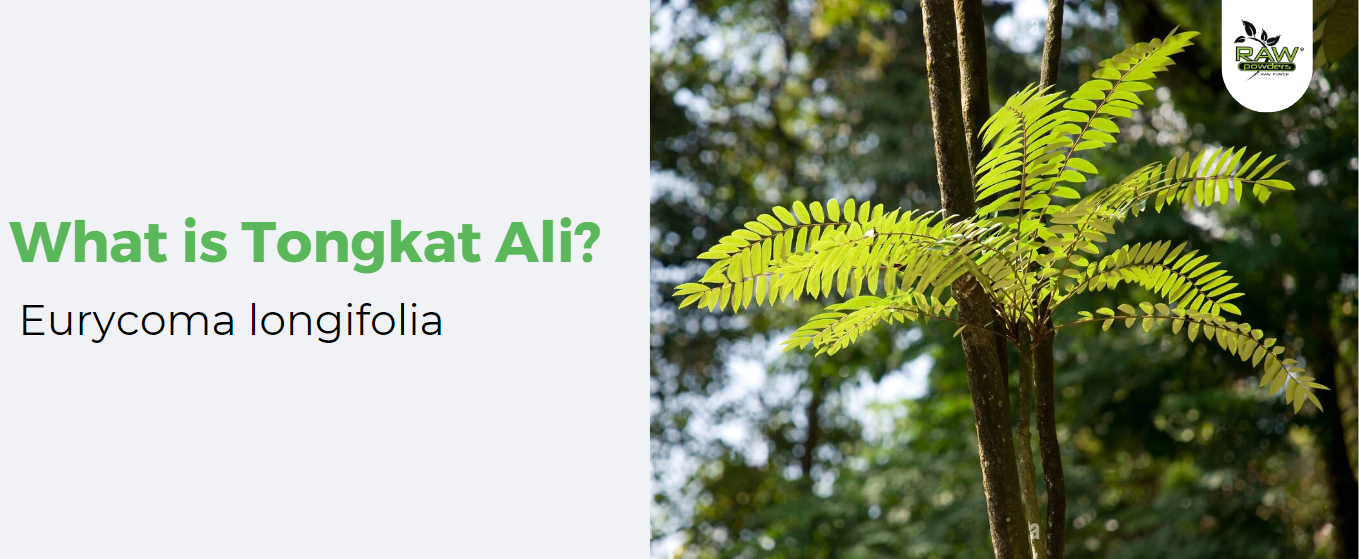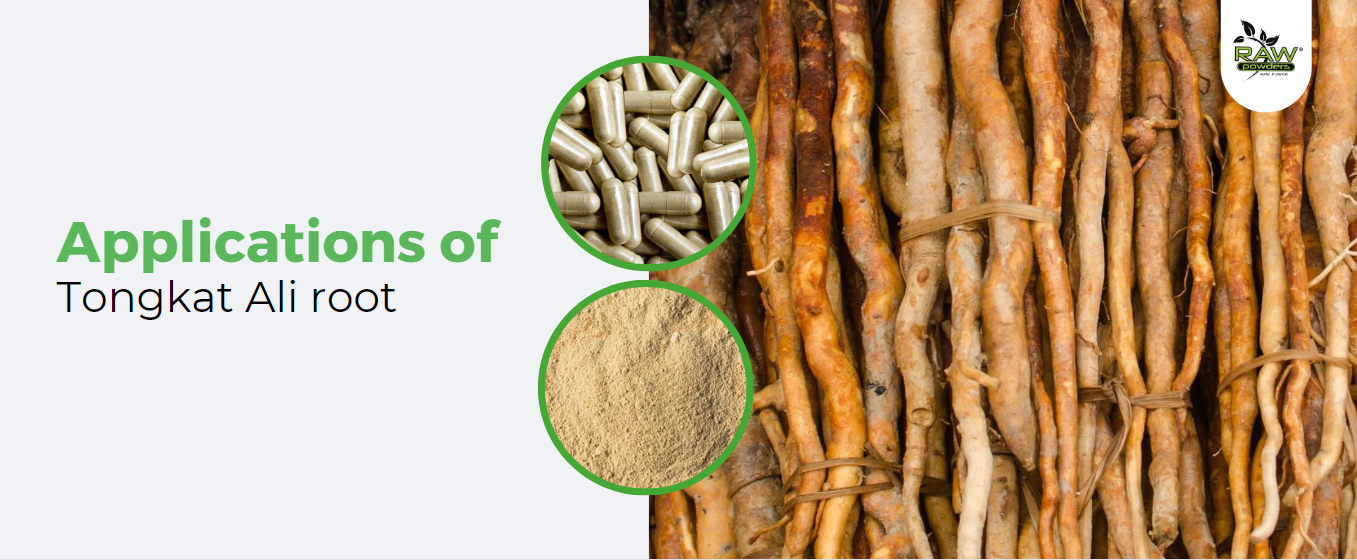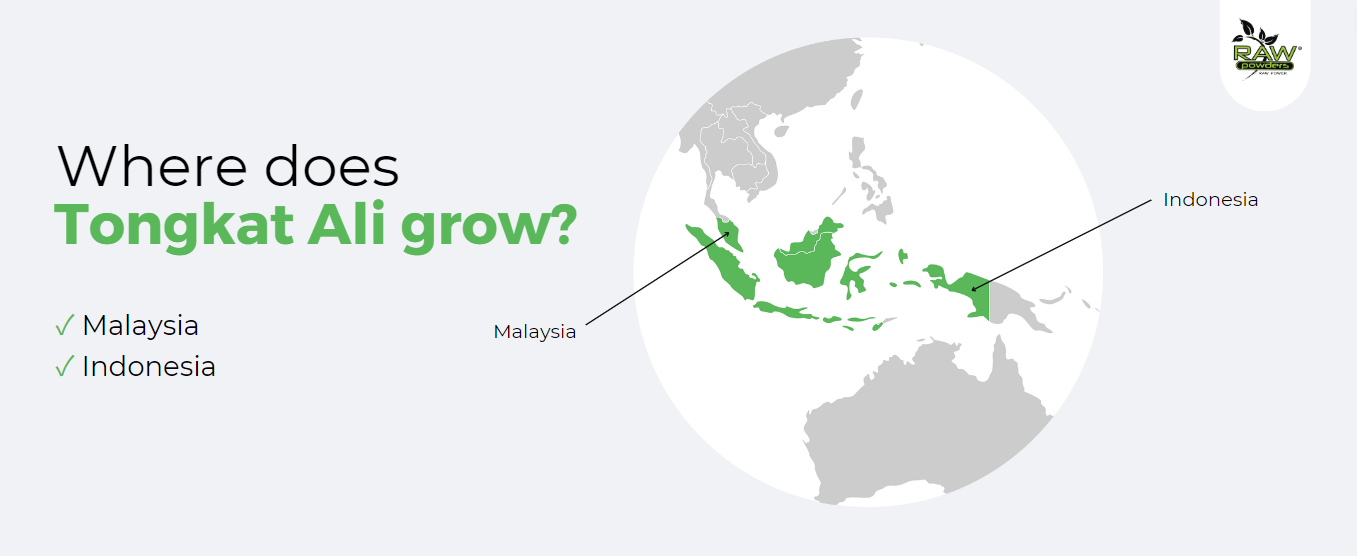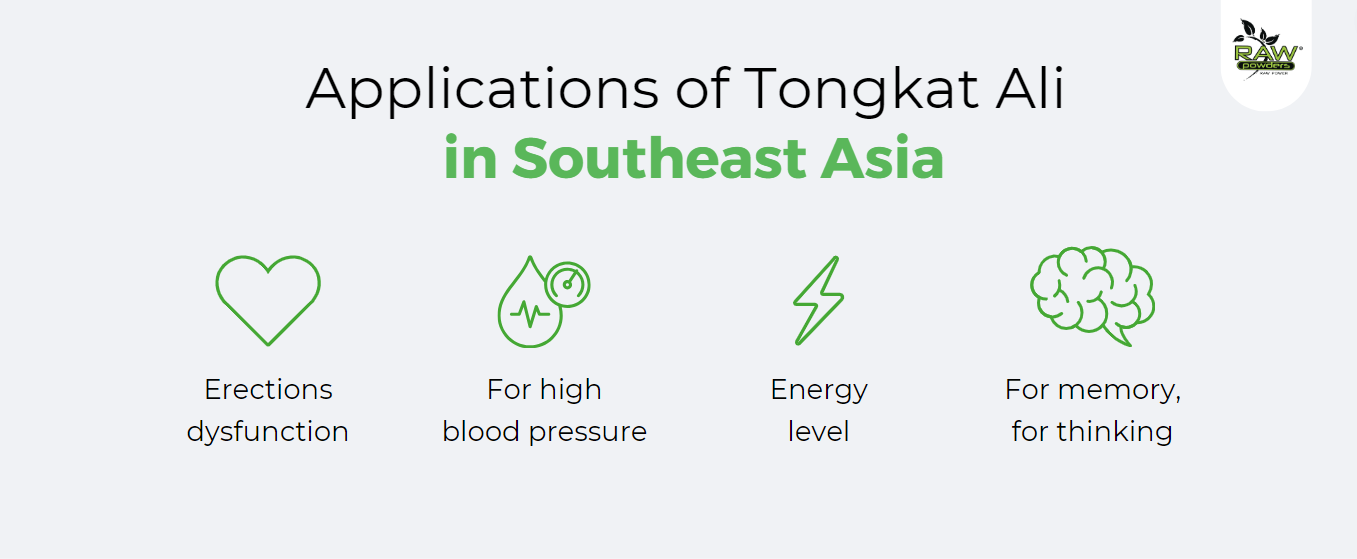WHAT IS TONGKAT ALI?

Tongkat Ali is a medium-sized tree with the scientific name Eurycoma longifolia; it is also known as "Malay amber". It grows in regions of Malaysia, Indonesia, Thailand and some other Southeast Asian countries. It can grow up to 10 metres. Usually does not have many branches. Nowadays, it is popular and widely used as a food supplement, food and drink additive. How to take and dose Tongkat Ali extract supplements, see the blog post: Tongkat Ali dosage.
Which part of the plant has positive health effects?
The root of the Tongkat Ali plant is used for medicinal purposes. It is a source of many biologically active substances, including alkaloids, flavonoids and glycosides. Tongkat Ali root is known for its effects on improving male sexual function and regulating testosterone levels in the body. For this reason, it is often used as a natural supplement that could help men's health. The plant is mainly used as a natural supplement or herbal tea with positive properties for the male body. Tongkat ali also has positive effects on women, for more information see the blog Tongkat ali and women's health. And for more information on the effects and benefits of Tongkat Ali on the human body, see the blog post: Benefits of Tongkat Ali.
Where does this plant grow?
Tongkat Ali is a wild plant. It is protected in certain countries because of the worldwide interest in the plant for commercial purposes.
Tongkat Ali is best known from Malaysia, where it is also known as 'Malay amber'. The plant is considered a national treasure and is protected from uncontrolled exploitation.
Tongkat Ali is found in the Indonesian islands, especially Sumatra. Here it is called 'Pasak bumi' or 'Pasak bumi merah'.
What else is Tongkat Ali called?
Please note that Tongkat Ali may be called differently in different countries and regions:
- Eurycoma longifolia (Latin)
- Malaysian Ginseng (Malaysia)
- Longjack, Longjax (English)
- Bidara laut, Pasak bumi, Pasak bumi merah (Indonesia)
- Cay Ba Binh, Hau Phat, Bba Binh (Vietnam)
- Langir Siam (Bahrain)
- Piak, Tung Saw, Phuyong daeng (Thailand)
- Tongkat Ali (Japan)
- Bitter Antidote, Bedara Mereah, Lempedu Pahit (Malay)
- Ba Ji Tian (China)
- Long Jack, Longjack (Singapore)
Under what conditions does the Tongkat Ali plant grow?
Tongkat Ali is a tropical plant. It grows best under certain climatic and soil conditions. Here are some of the important conditions needed for Tongkat Ali to grow:
Tropical climate. Tongkat Ali is adapted to tropical or subtropical climates. This means that it grows best in warm and humid environments.
Wet conditions. The plant needs sufficient moisture, so it grows well in soil that retains moisture. Consistently too dry soil can adversely affect the growth of Tongkat Ali.
Good drainage. Poorly draining soil can cause root rot.
Slightly acidic soil. Most Tongkat Ali species prefer slightly acidic or neutral soil. This can be important for the plant to absorb the required nutrients properly.
Sufficient sunlight. Although Tongkat Ali can grow in shade or partial shade, it grows best in a place with sufficient sunlight.
Not too much wind. Although Tongkat Ali can be grown outdoors, it can also be susceptible to strong winds.
What does Southeast Asia treat with this plant?
Tongkat Ali has been used for centuries in traditional medicine in Southeast Asia. There it is used to treat a variety of ailments including:
- Erectile dysfunction
- Impotence
- Anemia
- Malaria
- Diabetes
- High blood pressure
- Heart disease
- Improve energy levels
- Reduce fatigue
- Improve memory, thinking
- Improve endurance
- Reduce weight gain
There are many studies that have shown that the Tongkat Ali plant can be effective in treating these diseases. However, it should be noted that many of these studies have been carried out on animals or small groups of people, so more research is needed to determine more precisely whether Tongkat Ali is safe and effective in humans. However, there is information that Tongkat Ali, like any natural product, can cause side effects, which you can read about in the blog post Tongkat Ali side effects.
Findings
- Tongkat Ali is a plant that grows naturally in Southeast Asia.
- It has been used for centuries in Southeast Asia in traditional medicine.
- Tongkat Ali root is commonly used for medicinal purposes.
- Tongkat Ali is a source of many biologically active substances and can have a variety of beneficial effects on health.
- Tongkat Ali is safe for most people to consume, but it is important to consult a doctor before taking Tongkat Ali.
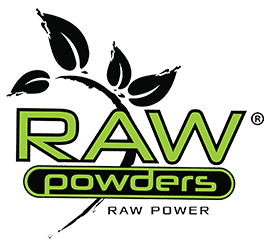




_front%20(1)-250x250.png)



_front%20(1)-250x250.png)

-(NN)_front%20(1)-min-250x250.png)

_front%20(1)-250x250.png)


_front%20(1)-min-250x250.png)
_front%20(1)%20(1)-250x250.png)
_front%20(1)-250x250.png)
